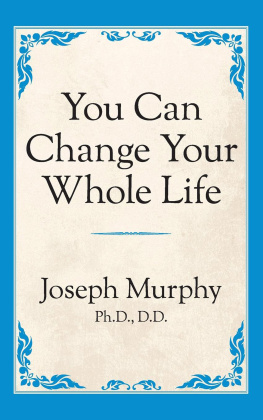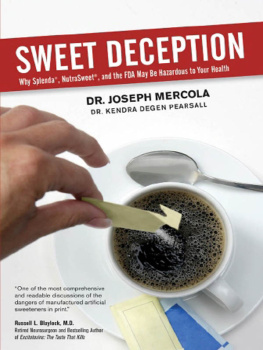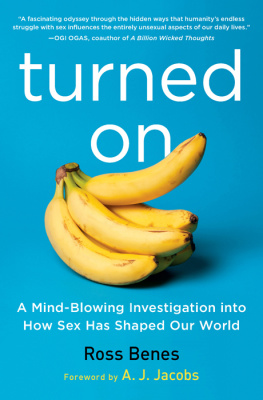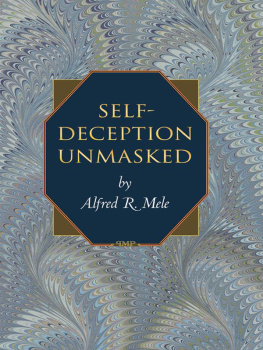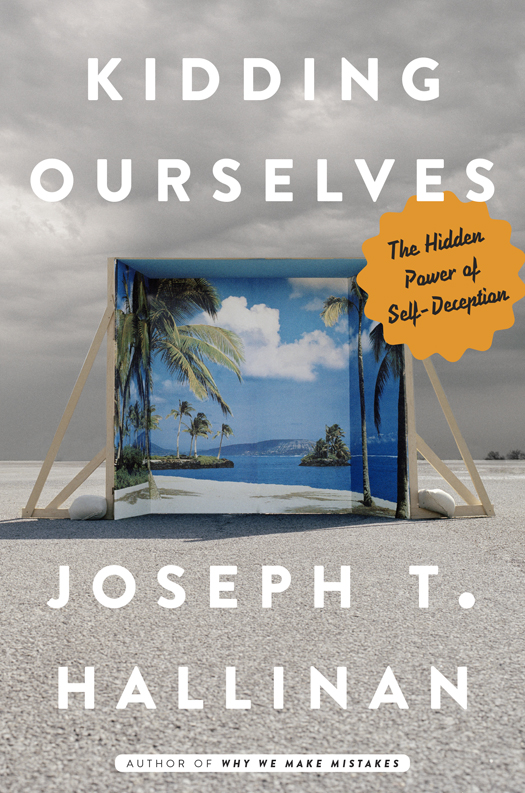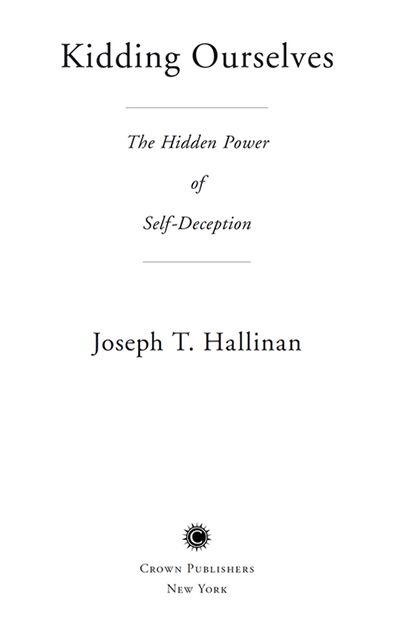A LSO BY J OSEPH T. H ALLINAN
Why We Make Mistakes
Going Up the River
Copyright 2014 by Joseph T. Hallinan
All rights reserved.
Published in the United States by Crown Publishers, an imprint of the Crown Publishing Group, a division of Random House LLC, a Penguin Random House Company, New York.
www.crownpublishing.com
C ROWN and the Crown colophon are registered trademarks of Random House LLC.
Library of Congress Cataloging-in-Publication Data
Hallinan, Joseph T.
Kidding ourselves : the hidden power of self-deception / Joseph T. Hallinan.First edition.
pages cm
Includes bibliographical references.
1. Self-deception. I. Title.
BF697.5. S426H35 2014
153dc23 2013042675
ISBN 978-0-385-34868-3
eBook ISBN 978-0-385-34869-0
Jacket design: Christopher Brand
Jacket photograph: Matthias Clamer/Stone/Getty Images
v3.1
In memory of my grandparents
N ICK AND J O A NN T ONOVITZ.
They taught me things not learned in books.
Life is the art of being well deceived.
W ILLIAM H AZLITT
C ONTENTS
P ART I. T HE P OWER OF N OTHING
Placebos, Mass Hysteria, and Fatal Delusions
P ART II. T HE E YE OF THE B EHOLDER
Perception, Expectation, and the Lure of Superstition
P ART III. D ELUSIONS OF S UCCESS
Power, Money, and Risk
Introduction
Imagine putting on a white coat and being told that it belongs to a doctor. Now imagine putting on the same white coat and being told that it belongs to a painter. What difference would this make for you?
If you said, None, consider yourself well down the road of self-deception. When participants in an experiment were asked to do exactly this, the result was eye-opening: when told they were wearing the coat of a doctor, their ability to pay attention increased sharply. But when told it was a painters coat, this improvement vanished. The effect lay entirely in their perception of the coat.
This book is about the power of mental behavior like this, the unconscious alterations we make in the process of perceiving the world and all that is in it, including ourselves. As the Irish philosopher George Berkeley noted more than two centuries ago, we have no direct access to our physical world other than through our senses. And though these senses may be remarkably acutethe nose of the average human being can detect ten thousand different odorsthey are easily misled. Accidentally step on your friends foot, and it will hurt. But let your friend believe that you intentionally stepped on her foot and, research has shown, it will hurt even more. The injury is the same, but the perceptions are different.
Much of this work goes on in the minds backyard, where it is rarely glimpsed and seldom acknowledged. We all do things for reasons we are unaware of. Studies have shown that we will tip the waitress more on a day that is sunny, smile when the boss walks into the room, and like what other people like on websites such as Facebooknot because we necessarily seek to be copycats or brownnosers or big tippers, but because our behavior is influenced by what Carl Jung has described as events of which we have not consciously taken note.
Since these subliminal influences pass unnoticed, the real reasons behind our human responses often elude us. In their absence, we drum up plausible explanations, which are frequently mere rationalizations, to explain why weve done the things weve done and seen the things weve seen. We create, in short, our own cover stories. These then serve as a kind of lens through which we filter our experience of the world. They may produce a distorted sense of reality, but that distortion can serve a vital function, often by making the world appear to be a rational, predictable place that we can control.
My interest in this subject was sparked, in part, by a previous book I had written, Why We Make Mistakes. In the course of writing it I found that, time and again, many of our errors could be chalked up to various delusions we all carry with us. Most of us, for instance, secretly believe we are immune to many of lifes risks. Divorce, cancer, heart attackthese are things, we tell ourselves, that happen to other people. And so we make the mistake of engaging in the very behaviors that produce the outcomes we would like to avoid. Doctors, for example, tend to believe that they are impervious to the diseases they treat. So they dont wash their hands nearly as often as they should. As a result, infections spread, hospital stays lengthen, and patients get sickerall because doctors deceive themselves about their own immunity.
After researching a good deal of this behavior, I began to wonder why it persists. If delusions like this are so bad for us, why do we still engage in them so prolifically? And why wasnt this propensity for self-delusion weeded from our genetic garden a long time ago?
These questions launched me on a three-year odyssey, the result of which you now hold in your hands. This trip has taken me to some strange places and subjects: casinos and stock markets and bordellos (they have more in common than you think); voodoo deaths and exorcisms. It led me to Benjamin Franklin, to Alfred Hitchcock, and even to the bedroom of Marilyn Monroe.
Along the way, I discovered again and again not only how potent self-deception can be, but, more importantly, just how good we are at it. We engage in self-deception so seamlessly, across so many aspects of our lives, that it seems to be an inherent human qualitya built-in shock absorber that allows us to adjust to lifes stresses and strains not by altering ourselves, but by altering our perceptions. Indeed, self-deception appears to be a universal quality, found not only in humans, but in animals as well. Even the lowly rat, for all its cunning, is prone to astonishing acts of self-deception.
We kid ourselves in myriad ways, with a wide spectrum of results. We lie in a hospital bed after surgery and watch the painkiller drip slowly through the IV tube, never realizing that the mere act of watching makes the drug all the more effective. Or we get dressed up on Saturday evening for a night on the town, never realizing that we systematically deceive ourselves about our own sexual attractiveness. Or, more commonly, we simply believe deep down that our judgment is better than the other guys and that we will, as a result, pay less than he will for almost anythinga flawless smile, a new iPad, even a trip to the moon.
Self-deception is such a potent force that its effects have been shown to rival those produced by many modern medical treatments, from powerful narcotics and cholesterol-lowering drugs, to some of the most widely used surgical procedures in the world. But this force is not always for the good; under certain circumstances self-deception can cause us physical harm and, in rare cases, even death.
For thousands of years self-deception has been seen as a fault. Wise men dating back to Demosthenes have warned against the perils of self-deceit, and with good reason: denying reality can lead to disaster.
In recent years, though, a more nuanced understanding of self-deception has emerged. Research across a variety of fields points to a common finding: that the ability to kid ourselves is not only innate, its often positive. Self-deception may actually be an evolutionary gift that allows us to adapt and persevere even whenand perhaps



